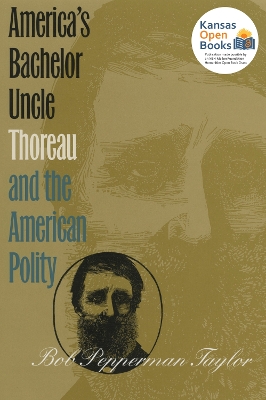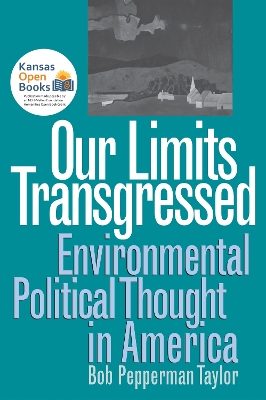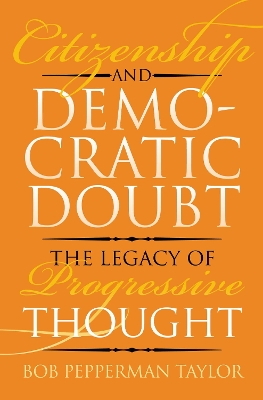American Political Thought
3 total works
Still widely viewed as a remarkable nature writer but simplistic philosopher with no real understanding of society, Thoreau is resurrected here as a profound social critic with more on his mind than utopian daydreams. Rather than the aloof and very private individualist spurned by conservatives and championed by radicals and environmentalists, Taylor portrays Thoreau as a genuinely engaged political theorist concerned with the moral foundations of public life. Like a solicitous bachelor uncle (a self-referential phrase from his journals), Thoreau persistently prodded his fellow citizens to remember that they were responsible for independently evaluating the behavior of their government and political community.
Taylor contends that, far from being confined to a few political essays (Civil Disobedience, Slavery in Massachusetts, and A Plea for Captain John Brown), Thoreau's political critique was a lifetime project that informed virtually all of his work. Taylor's persuasive study should send readers back to Walden, A Week on the Concord and Merrimack Rivers, and the 14-volume Journal, among many other writings, for a provocative new look at one of America's most influential writers.
Addressing this and related questions, Bob Pepperman Taylor analyzes contemporary environmental political thought in America. He begins with the premise that environmental thinking is necessarily political thinking because environmental problems, both in their cause and effect, are collective problems. They are also problems that signal limits to what the environment can tolerate. Those limits directly challenge orthodox democratic theory, which encourages expanding individual and political freedoms and is predicated on growth and abundance in our society. Balancing the competing needs of the natural world and the polity, Taylor asserts, must become the heart of the environmental debate.
Contemporary environmental thinking derives, according to Taylor, from two well-established traditions in American political thought. The pastoral tradition, which he traces from Thoreau through John Muir to today's deep ecology, biocentrism, and Green movement, appeals to moral lessons that nature can teach us. The progressive tradition--which he traces from Gifford Pinchot to the apostate neo-malthusians (who reject the commitment to democratic equality) and liberal theorists like Roderick Nash, Christopher Stone, and Mark Sagoff--focuses on the role that nature plays in supporting a liberal democratic society. This analysis sidesteps the usual anthropocentric-biocentric formulation of the debate, which tends to center on the most appropriate conception of nature abstractly considered, and reorients the discussion to a consideration of the relationship between our political and environmental values. If we are to stem the thoughtless pillaging of the environment, Taylor contends, that's where the changes must occur.
Any satisfactory resolution of the tension between the garden and the machine must draw upon the best of both the pastoral and progressive traditions, Taylor concludes. The best of pastoralism teaches us that any reform must challenge the human arrogance and crude materialism that permeates much of liberal society.
In addition to Nash, Stone, and Sagoff, Taylor discusses other contemporary thinkers such as Garrett Hardin, Paul Ehrlich, Robert Heilbroner, William Ophuls, Julian Simon, Robert Paehlke, J. Donald Moon, Kirkpatrick Sale, J. Baird Callicott, Holmes Rolston, Paul Taylor, Barry Commoner, and Murray Bookchin.
The contemporary environmental movement needs to step back from the hurly-burly of its political struggles to do some deep thinking about ends and means. This book is a useful tool for doing that. It is a clearly written, well organized, and thoughtful guide to many of the more important thinkers who have appeared in recent decades on environmental issues and ethics. Best of all, the author points us to what may be the central question of our times: how can we achieve a society that is at once true to our democratic traditions and yet recognizes in nature an intrinsic set of values?--Don Worster, author of Nature's Economy: A History of Ecological Ideas.


